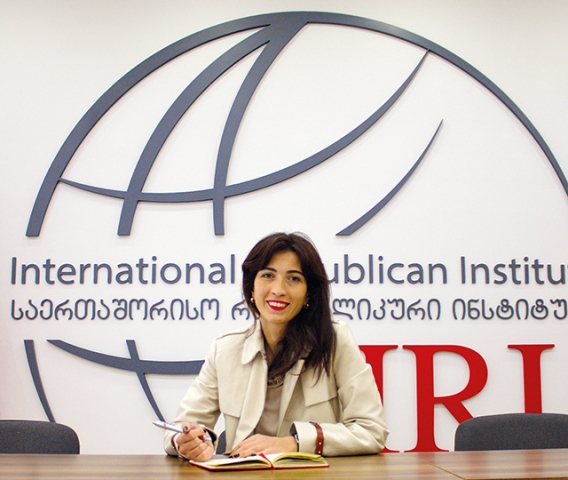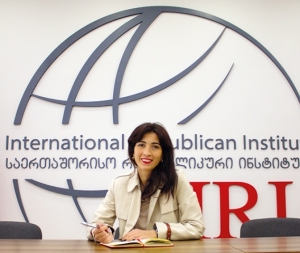On Making Women’s Political Participation Part of the Georgian Culture
Under-representation of women in politics is still a big challenge for Georgia on its way to democratic development. GEORGIA TODAY sat down to discuss it with Nino Dolidze, Manager of Women’s Programing of the International Republican Institute (IRI), a nonprofit, nonpartisan, international organization, working in Georgia since 1999 supporting the development of a multi-party political system in the country.
What steps should be taken in order to guarantee the equal political participation of men and women in Georgia?
Women’s political participation is very low in Georgia. According to the statistics, Georgia possesses one of the lowest places in the world in terms of the women’s political participation. There are several reasons for the underrepresentation of women in political life; however, I would like to underline the three main factors. First of all, Georgian society is strongly masculine in its traditions and culture. Secondly, there is a scarcity of will among political parties to attract and empower women politicians. And lastly, the State still lacks the interest to support and strengthen gender equality by creating gender-sensitive legislation in Georgia.
When speaking about solutions, first of all, the government should alter the legislation and introduce a mandatory gender quota, which, in the short-run, is the most efficient way to solve the problem. In addition to that, the internal democracy of political parties should be promoted. This means that political parties should have gender-sensitive approaches and should establish relevant mechanisms to recruit and promote women within the party. Moreover, conducting a largescale awareness-raising campaign about gender equality issues and women’s rights is essential. Such campaigns can highlight not only the fact that women deserve to be a part of the decision-making process, but also bring to light that the increased political participation of women can result in tangible and positive changes in politics in general.
What is your organization’s role in supporting women’s political participation through the programs you implement? Have you planned any activities dedicated to strengthening women’s participation for the 2020 Parliamentary and 2021 Municipal Elections?
IRI focuses on advancing the country’s multi-party political system through strengthening political parties in Georgia. We acknowledge that political parties cannot function efficiently unless they increase the role of marginalized groups in the political process, including women and youth.
IRI has been working in several directions in order to advance women’s political participation. We support political parties in the establishment and development of women’s organizations; train women members of political parties on all necessary political and leadership skills; empower already elected women to be more active and responsive, especially on the local levels; and assist political parties to develop more inclusive party platforms, which takes into account the interests of women.
In addition to concrete programs and activities, one of the main areas of IRI’s work is to advocate for changes, including legislative changes, by working directly with decision-makers of the country.
For the upcoming elections, IRI will continue to equip women with the necessary skills through its Electoral Campaign Schools and Leadership Academies. If constitutional amendments result in the 2020 parliamentary elections being conducted with a proportional system, we will work actively with political parties in order to see women politicians at the top of the lists. As for the 2021 municipal elections, we will continue working to empower women in the regions.
You mentioned that IRI has been working with women representatives of local municipalities. Are there gender-sensitive policies and to what extent do they reflect women’s interests?
When speaking on women’s political participation, we consider the local level as important as the central government. As of today, only 13.5% of local councilors are women, only one out of 64 City Mayors is a woman and no governor are women. These statistics show to what extent local-level politics might be gender-sensitive. Unfortunately, today, the programs and budgets of local governments are not gender sensitive, but there are attempts at gender mainstreaming in some of the municipalities. As a result of our programs, we have seen many successful examples of increased solidarity among female politicians, who give up their narrow party interests to solve the problems of their women citizens. However, such cases are still few and far between.
To better plan our future activities in this area, we need to analyze qualitatively the policies created by female politicians, to see if women have different accents and if these accents reflect the needs and interests of women voters more. Some say culture does not make people, people make culture. If it is true that women in politics is not our culture, then we must make it our culture.”












